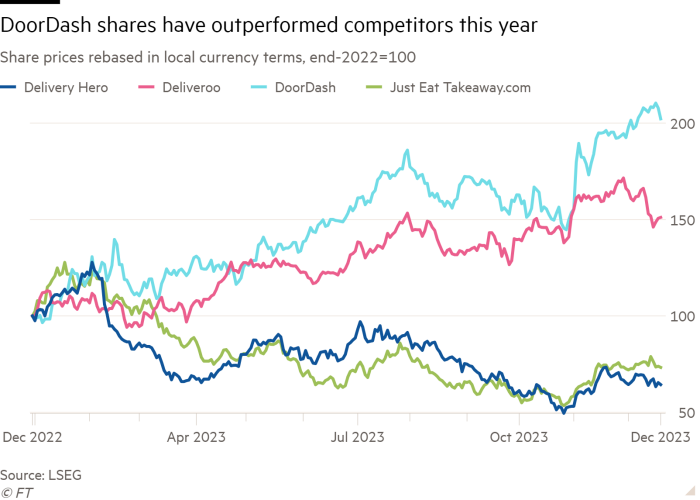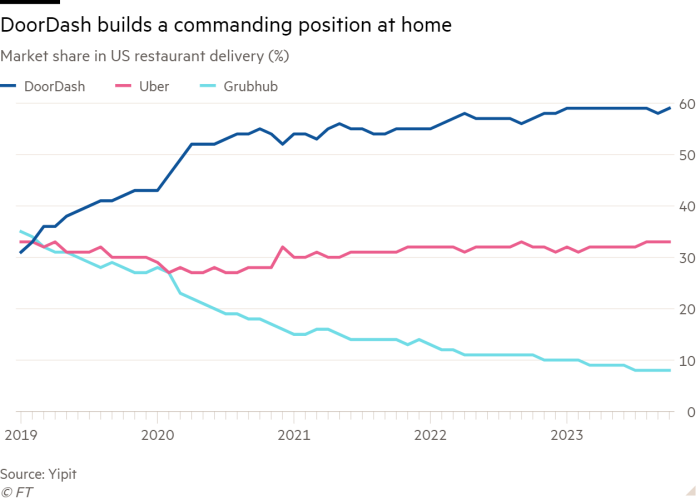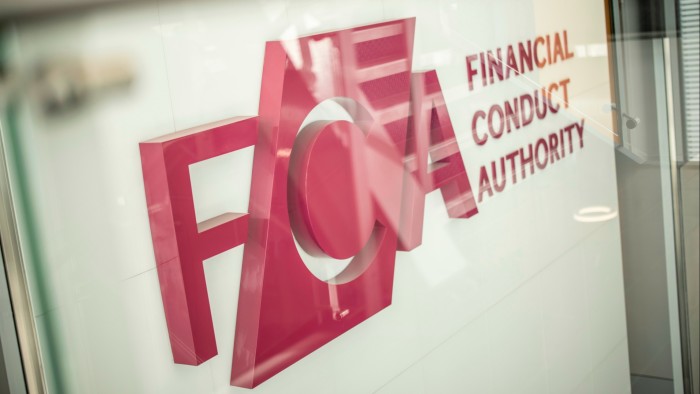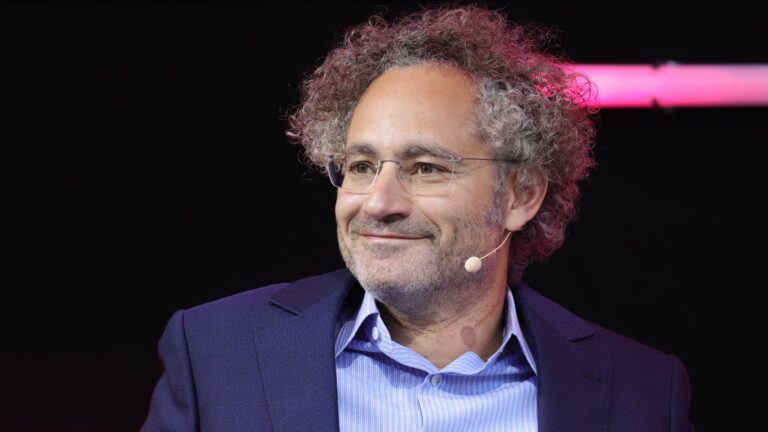
DoorDash plots expansion outside core restaurant business in US
Unlock the Editor’s Digest for free
Roula Khalaf, Editor of the FT, selects her favourite stories in this weekly newsletter.
DoorDash is looking to use its financial clout to diversify beyond its core business of delivering restaurant meals to home diners, as the US group seeks ways to invest a growing cash pile.
“The two largest areas of investment are expansion and penetration outside of the US, as well as the same outside of restaurants,” chief executive Tony Xu said in an interview with the Financial Times.
His declaration of a push into new markets comes 18 months after DoorDash completed its €7bn all-stock acquisition of Finland’s Wolt, a transaction that extended the US meal delivery company’s reach to 27 countries.
The San Francisco-based company, meanwhile, generated $878mn of free cash flow in the 12 months to the end of September, setting it up with financial muscle to look around for opportunities.
DoorDash, keen to target smaller geographies often avoided by its competitors, last year expanded into Austria and Iceland through Helsinki-based Wolt. Its interest in smaller countries mirrors an American focus on suburban areas and smaller cities. Job postings suggest the group is looking to move into Luxembourg.

Food delivery companies have had a tumultuous few years. Business at DoorDash and its competitors flourished during the Covid-19 pandemic when consumers stuck at home during lockdowns pushed up delivery orders. However, as the stringent rules eased, growth in the sector slowed.
Analysts predict further consolidation in the crowded food delivery sector as industry valuations have slipped from those pandemic highs.
Deliveroo, for example, could face some uncertainty this year as the expiry looms of dual-class shares owned by its co-founder and chief executive Will Shu. The shares give Shu extra voting powers, including the ability to block a hostile takeover, until the third anniversary of Deliveroo’s 2021 initial public offering.
DoorDash, however, has maintained some momentum and enjoyed a more bullish 2023 than its rivals such as Delivery Hero and Just Eat Takeaway. Third-quarter revenue rose 27 per cent to $2.2bn, compared with the three-month period to September 2022, its latest earnings report showed.
“We’re not going to invest behind inefficient growth” and will keep a “high bar” for acquisitions, Xu said. “We’re not investing into every single project at the maybe levels that we like . . . but we’re always looking to reinvest.”
The 10-year-old online platform has nearly doubled its market share over the past five years to build a commanding position in US restaurant delivery, according to researcher YipitData. DoorDash now accounts for 59 per cent of the market — nearly double the share of Uber, its nearest rival.

Last year, its shares more than doubled to outperform the sector and give DoorDash a market capitalisation of $39.4bn. That share price, of about $100 apiece, is still, however, well below a 2021 peak of about $246. The company had a $70bn valuation when it listed its shares in New York three years ago.
The group has also authorised stock buybacks, approving the repurchase of up to $750mn of shares in February in its latest round.
Miki Kuusi, chief executive and co-founder of Wolt who is now steering DoorDash’s business outside the US, said the company was still “investing into growing the population coverage” in its 29 active markets. “We don’t in most of our countries cover 100 per cent of the population,” he said.
As part of its overall expansion strategy, DoorDash added alcohol delivery in 2021, shipping beer, wine and spirits quickly to consumers’ doors in 20 US states as well as in Australia and Canada in a follow-up to similar moves by rivals including Uber and Gopuff.

The company is also building up an advertising business that it launched two years ago for restaurants and other brands to market to its customers. That business, which rivals have also adopted for its high-margin sales, has helped drive DoorDash’s revenues.
Mirroring other delivery groups such as Deliveroo, DoorDash is targeting an expansion into retail and grocery as a key avenue for expanding its business.
“If you already have a large consumer base, and a large driver base that is interacting with you many times a week, you just have more shots on goal to be able to launch into these adjacent categories,” Xu added. “We went from zero to a multibillion-dollar business” for non-restaurant deliveries.
The company at the end of 2022 had more than 32mn monthly active users and more than 6mn drivers.
Supermarkets such as BJ’s Wholesale Club, which was previously exclusive to competitor Instacart, have partnered with DoorDash. The company is also working with retailers such as Dick’s Sporting Goods, the largest of its kind in the US, and French beauty group Sephora.
“Grocery and convenience is the big push and the one that has the cleanest use case” among the company’s expansion plans, said Nikhil Devnani, an analyst at Bernstein.






